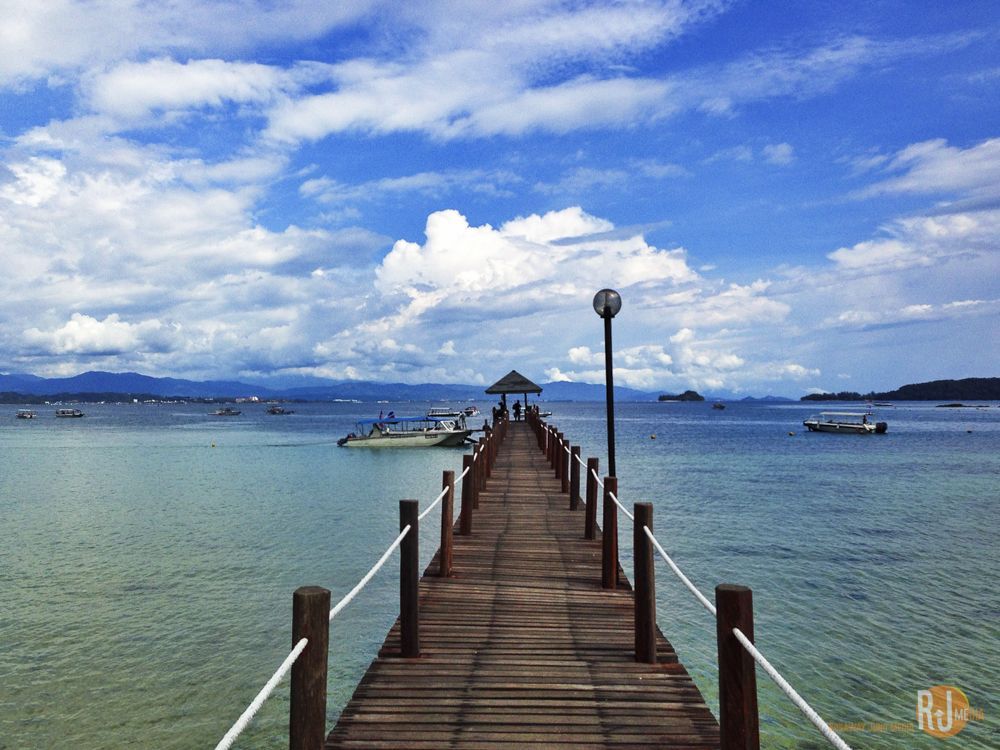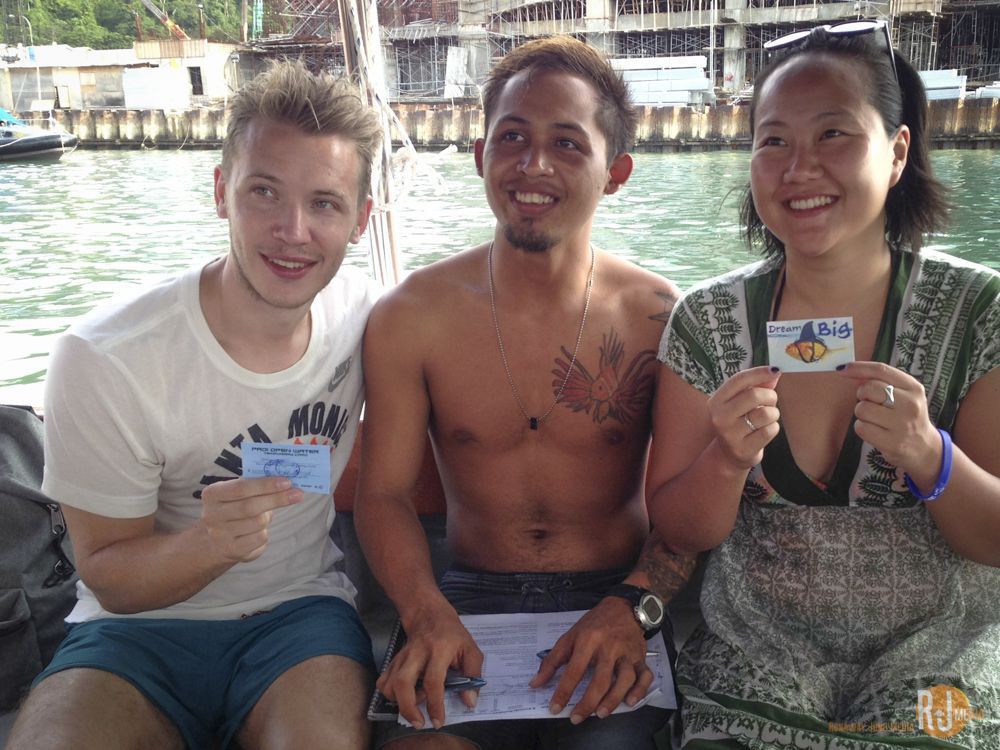Guess what? I’m an open water diver now!
Before my birthday last year, I made a promise to myself to be more active. One of the promises on the list was “learn how to dive.” I have a personality of both a brave woman and a chicken. When I thought about diving, the chicken side of me kicked in. But since I’m living in a diving hot spot (Kota Kinabalu, Malaysian Borneo), I could not pass this opportunity. Spirit of Bucket Living kicked in. Without hesitation, I enrolled myself a three-day open water diver course at a local dive shop. Now I’m sitting in my living room, writing this article, so it means I didn’t do something stupid underwater. It was a great learning experience. Here are things I’ve learned during my diving course.
There is always something to learn
The three-days open water diving course starts with one full day of theory. You have to watch videos from PADI, and have to pass the final quiz at the end of the day. Diving is a widely popular sport around the world, but there are rules to keep, safety procedures to practice, and theories to learn. Diving is a beautiful combination of human adventure spirit and basic rules of physics. It made me feel like I was back in school while sitting in the tiny room, and I loved it. I’ve always loved school and learning something new. I think I survived the six years of university and graduate school because I just love learning stuff, no matter what subject that is. Even in this nomadic, working online, unconventional life, there is always something to learn.
It’s all in your head
My main fear of diving had to do with my bad eyesight. As I explained, why I’m not a lucky one, why I wasn’t born to travel so to speak, I’m practically blind without my contact lenses or glasses. What if someone knocked my mask off underwater and I couldn’t see? I wouldn’t be able to open my eyes. And what if I lost my contacts underwater? I’d panic big time. Underwater isn’t the best place to get have a panic attack. Say I had the prescription mask. But what if I lost it underwater? What would I do then?
Over the years many friends I met told me all the worries are all in my head. There will be someone with you all the time (I didn’t know that), and the accidents don’t really happen often but we practice in case of emergency. But you know how people (including me) are. They don’t listen when they are full of (wrong) ideas in their heads. No advice can penetrate.
After having four hours of diving under my belt, now I finally know what they meant. All the worries really are all in my head. I felt almost silly to be so worried about something that is nothing.

By learning more, you can love more
As I travel more extensively, I’ve gained a deeper respect for Mother Nature. It’s amazing how powerful she is, and how destructive humans can be. After visiting Camp Leakey, the chance to do conservation work for great apes (including orangutans) is always on my radar. Once you know more, you can see more. Same goes for the underwater world. You see these dead corals on the bottom of the sea. Corals take thousands of years to grow into the structure we see now. But with one accidental flick of the fins, thousands of years of history are gone, just like that. After seeing the active and powerful interaction between fish, corals, anemone, plants, and other ocean life, it struck me hard that we really need to work hard to protect these beautiful creatures.
Trust your buddy
People always told me diving is safe because you go with a buddy or an instructor. There will be someone to help you. Well, that’s good to know. It was true what they said. The buddy system is quite important in scuba diving, I’ve learned. We can share the extra regulator (that helps you breathe under water), share the fun of discovering things (like when we saw a hawksbill turtle!), and just the buddy makes me feel better that I’m not alone. Trust your buddy! He or she can be your life saver, literally.

Remember to breathe, and “Ohhhhh shiiitttttt”
The first day of theory was full of terrifying medical name dropping. You can burst your lung. You can damage your inner ear. You can pass out. Nitrogen bubbles can give you a serious brain damage. And this and that. The most scary thing was about the lung. It’s a human instinct to hold the breath under water. But in diving, by the simple law of physics, we can’t. Even if we do an emergency ascend (when I’m out of air, going to the surface immediately), we have to breathe out. Never hold it in. In the PADI video, they taught us to say “Ahhhhhh” slowly while going up. @Kathy_Darling from Twitter told me to say “Ohhhhhh shiiittttt” during the emergency ascend. It seemed quite appropriate.
@RunawayJuno emergency ascent = hands over head, swim to surface saying “ohhhhhh shiiiittttttt”. well that’s how i learned it anyway. 😉
— Kathy Darling (@Kathy_Darling) August 9, 2014
Surprisingly, breathing was the easiest part. I mean, we have to breathe, right? I don’t know what I was thinking. Breathing came natural, as it should. During the emergency ascend training, I used the “Ohhhhh shiiiittt” breathing technique. I’m ready.
Another possibility, another excitement
The best part about learning how to dive is that now I have one more reason to be excited about my travels. I’ve been to so many great diving spots, like Malapascua in the Philippines, Southern Great Barrier Reef, and even the nearby islands if Kota Kinabalu, but never tried it. But now I can, and I want to! Who knows, I might go for the advanced diving course sometime soon. Can you tell that I like diving?
I can’t wait to explore the underwater world in my future travels. Are you a diver?
What did you think when you got your first certification?